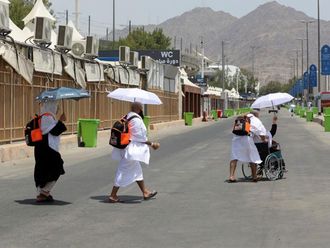
Bangkok: An island in southern Thailand was closed on Thursday after the discovery of extensive coral bleaching, the national parks office said.
Bleaching, which occurs when algae that live inside corals is expelled, is usually caused by higher than normal ocean temperatures and increased ultraviolet radiation.
Corals can recover from bleaching over time, once only temperatures fall and conditions in the ocean return to normal.
The closure comes after a deadly heatwave caused temperatures to soar across Thailand and Asia in recent weeks.
The Department of National Parks, Wildlife and Plant Conservation (DNP) said Pling Island and the coral reefs around Sirinart National Park in Phuket would be temporarily closed due to extensive coral bleaching caused by rising seawater temperatures.
The department is also monitoring national parks at Koh Chang, Koh Samet, Chumphon, Koh Surin, Phang Nga Bay, the Phi Phi islands and Lanta.
The news comes after the US National Oceanic and Atmospheric Administration (NOAA) warned last month that the world is currently experiencing its second major coral bleaching event in 10 years.
Reef systems from Australia to Florida are struggling following months of record-breaking ocean heat, the NOAA said.
Park closures occur periodically in Thailand, which was visited by 28 million tourists in 2023, many of them coming to enjoy the country's pristine beaches.
In 2018 Maya Bay, the Thai island made famous by Hollywood film "The Beach", was shut for more than four months to allow its coral and sea life to recover after it was exhausted by hordes of tourists.
Scientists have long warned human-induced climate change will produce more frequent, longer and more intense heatwaves.
While the El Nino phenomenon is helping drive this year's exceptionally warm weather, Asia is also warming faster than the global average, according to the UN's World Meteorological Organisation.












